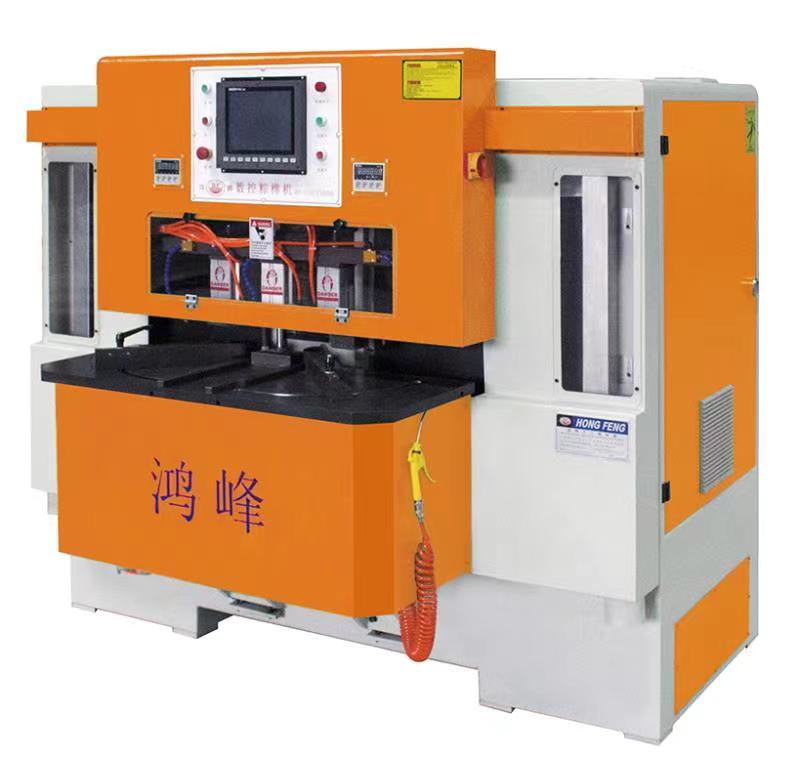When it comes to precision, efficiency, and versatility, CNC mitering machines have revolutionized the woodworking industry. The growing demand for intricate, high-quality woodworking projects has led to an increased reliance on CNC technology, particularly CNC mitering machines. These machines offer significant advantages over traditional methods, especially when it comes to complex woodworking designs. In this article, we¨ll explore how CNC mitering machines, particularly those from Hongfeng, can handle even the most complex woodworking designs with precision and ease.If we can practice these points, CNC double end mortiser and tenoner Will be unique, become a leader in the industry, and keep moving forward. https://yaojunmgjx.com
1. Understanding CNC Mitering Machines
A CNC mitering machine is a computerized system used for making precise miter cuts in wood, typically at angles. These machines use advanced automation, allowing for highly accurate cuts, even on intricate and detailed designs. Unlike manual saws or traditional miter cutting machines, CNC mitering machines are programmed to make cuts with high precision and repeatability, making them ideal for custom woodworking.
CNC MITER MACHINE supplier.jpg
2. Why Choose CNC Mitering Machines for Complex Designs?
Complex woodworking designs often require multiple angled cuts and highly accurate measurements. Traditional woodworking methods can be time-consuming and prone to human error. With CNC mitering machines, these challenges are greatly minimized. Here’s how:
Precision and Accuracy: CNC mitering machines, like those offered by Hongfeng, provide unparalleled accuracy, ensuring that each cut is exact. This precision is crucial for complex designs that require tight tolerances, such as intricate molding or furniture pieces.
Customization: With a CNC mitering machine, woodworking professionals can easily program the machine to cut complex patterns and angles. Whether it¨s creating detailed crown molding or working with irregular wood shapes, CNC technology ensures the cuts match the design specifications exactly.
Consistency: Once programmed, CNC mitering machines can make the same cut multiple times with identical results. This consistency is key in maintaining quality across large production runs or when creating multiple copies of a complex design.
3. Handling Intricate Cuts with Ease
One of the primary reasons woodworkers opt for CNC mitering machines is their ability to handle intricate and precise cuts that would be difficult to achieve with traditional methods. For complex woodworking designs, such as multi-angle joints, intricate dovetails, or compound angles, a CNC mitering machine is the ideal tool.
For example, creating furniture with angled joints or mitered corners often involves cutting at very specific angles. These cuts are essential for ensuring that the pieces fit together seamlessly, which is critical for both aesthetics and structural integrity. With Hongfeng CNC mitering machines, woodworkers can easily input precise angles and dimensions into the system, which then automatically executes the cuts with accuracy.
CNC Milling Groove Drillhole Machine factory.jpg
4. The Role of Automation in Complex Designs
Automation is one of the key factors that allow CNC mitering machines to handle complex designs. By using advanced software and machine programming, these systems can execute designs with minimal manual intervention. This is particularly beneficial when working on complex woodworking designs that involve multiple cuts or angles. The ability to save time and reduce labor while maintaining high-quality results is one of the main reasons that Hongfeng CNC mitering machines are in such high demand.
Automation also allows for:
Faster Turnaround Times: Complex designs can be completed in a fraction of the time it would take with manual methods. This is especially useful in production environments where time is a critical factor.
Reduced Human Error: While traditional methods rely on the skill of the operator, which can introduce variability, CNC mitering machines eliminate the risk of human error. This is particularly important when dealing with intricate woodworking designs, where even a small mistake can affect the final product.
Efficient Use of Materials: With automated precision, materials are cut more efficiently, reducing waste. This is beneficial both from a cost and sustainability standpoint, as it minimizes scrap material, a key concern in large-scale or custom woodworking projects.